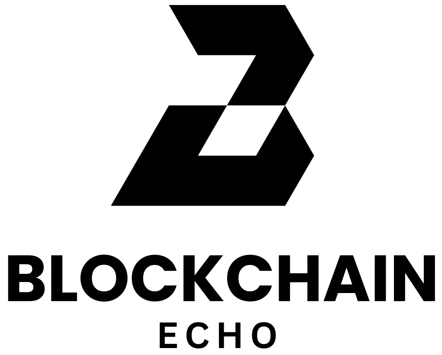Disclosure: The views and opinions expressed here belong solely to the author and do not represent the views and opinions of crypto.news’ editorial.
Tokenization is rewriting the rules of global wealth, and Asian countries like Indonesia and Malaysia are emerging as epicentres of the global real-world asset boom. Unlike legacy hubs like London, dependent on U.S.-approved crypto rules and bogged by regulatory inertia, Asia is moving deliberately to shape its own financial future.
Summary
- Tokenized sukuks as untapped opportunity: Despite $1T+ in global sukuk issuances, access has been limited to institutions — tokenization can democratize Shariah-compliant, yield-bearing finance.
- Regulatory clarity ≠ readiness: Licensing is now baseline, but without secondary markets and infrastructure, $25B in tokenized assets remain largely illiquid.
- Infrastructure as competitive edge: Success depends on compliance-by-design systems that enable cross-border settlement, interoperability, and retail-friendly products.
- Execution over vision: Platforms must localize architecture, own deep infrastructure stacks, and build trusted distribution rails to capture Islamic finance growth.
Yet, as capital and innovation flood into RWAs, one segment remains curiously underserved: Shariah-compliant, yield-bearing instruments. Sukuks, long dominated by institutions, represent over $1 trillion in outstanding issuances globally, with Malaysia and Indonesia accounting for nearly half (47%) of the global sukuk market. This lucrative investment vehicle has historically been constrained to institutional and accredited investors — but tokenized offerings are here to change that.
As regulatory approval becomes table stakes, Asian players are racing to capture the global sukuk market with tokenization as the means to lower capital barriers and unlock Islamic finance liquidity. However, resilient builders must first operationalize compliance through on-chain products, cross-border plug-ins, and transparent liquidity access to drive a performant market with lowered entry barriers. The future of tokenization will be defined by utility, not ideology.
Regulatory approval is only the point of parity
Regulatory licensing, once conferred as legitimacy, is now the baseline. In many jurisdictions, licensing has outpaced the infrastructure needed to operationalize it, leaving much of the $25 billion in global tokenized assets illiquid or restricted to primary issuance stages. Regulatory clarity risks becoming symbolic rather than catalytic without mature secondary capital markets to build scalable products, investor trust, and robust financial ecosystems.
As global hubs like Singapore, Hong Kong, and Switzerland court the same capital flows and talent pools, regulators must manage the flood of new entrants, each eyeing a stake in the region’s financial economy. This competitiveness will hinge on robust regulatory frameworks and the infrastructure readiness of those operating within them.
To future-proof, financial platforms should build product architecture designed to meet the evolving demands of such global hubs from day one, ensuring interoperability and scalability to reach underserved markets. Those natively embedding compliance, from KYC and cross-border identity resolution to RegTech integration, are better positioned to pass due diligence by sovereign investors. Many are already aligning with global standards such as ISO 20022 for payments and token settlement, suggesting that tokenized finance is converging with global norms faster than expected.
Ultimately, infrastructure must go beyond following rules to deliver practical utility. Compliance-by-design principles should be architected to enable 24/7 cross-border settlement systems, frictionless access to regulated yield offerings, and mobile-native experiences tailored for first-time investors. These systems must anticipate evolving compliance standards while remaining intuitive to new users. By becoming ecosystem architects, platforms can stitch together on-chain pipes for a new class of inclusive, compliant, and composable investment vehicles.
Turning regulatory clarity into a competitive edge
The advent of regulation-ready markets means the next generation of tokenized finance will be merited by execution, not vision. The burden has shifted to how well platforms translate the ‘license to operate’ into usable products by uniting user experience, cross-border operability, and asset design, with execution leading on three fronts.
- Localised architecture from day one: Tuning into local realities will outpace hype players who simply replicate Western models. Of systemic significance across Asia, Islamic finance is gaining a foothold even in non-Muslim majority countries. This indicates successful platforms are built with native fluency in local economic transactions and on-ground environments.
- Owning infrastructure to move fast: Deep infrastructure stack ownership, from Layer-2 chains to compliance engines, enables faster market moves, resilience, and jurisdictional adaptability. Platforms that nimbly update systems and support programmable rulesets while actively responding to regulatory changes will dominate institutional adoption and market expansion.
- Trusted distribution rails: Reaching the next billion users requires working with the infrastructure people already know and trust. Direct integrations with legacy institutions, including banks, telcos, and sovereign funds, are key to mass adoption. From crypto cards, instant USD off-ramps, to yield-bearing sukuks, a financial superapp is an essential front-end for full-stack financial ecosystems serving real-world Islamic finance needs.
Ultimately, regulatory clarity is only as valuable as the infrastructure it enables. In the new phase of tokenized finance, those building for local context are best positioned to shape what comes next.
Scaling amid regulatory flux and infrastructure gaps
In emerging markets, where innovation outpaces precedent, high-stakes growth depends less on speed than on resilience. In these markets, sandbox conditions and regulatory frameworks are still crystallizing, and rigidity becomes risk. Operators must build systems that thrive in today’s rules and anticipate tomorrow’s evolution. Otherwise, hard-coded infrastructure will turn policy shifts into operational fire drills, eroding user trust and regulator confidence.
From fragmented identity systems, limited custodial services, to absent standardized third-party audit protocols, infrastructure gaps continue to restrict institutional capital in RWA tokenization. Even advanced jurisdictions like Hong Kong are bringing virtual asset custodians under formal oversight. This reflects how fragile custody, identity, and compliance infrastructure remain dynamic evolution points globally. At its current juncture, agility and fastidious oversight are necessary levers to unlock institutional participation at scale.
Setting the new world order with tokenized sukuks
As Asian regulations mature, the question is no longer whether tokenization will reshape finance, but how and who will lead. Licensing is just the start; thriving platforms must integrate robust compliance, consider retail expectations, and cater to Shariah-aligned finance.
Tokenized sukuks offer a compelling pathway for accessible, yield-bearing products within Islamic finance. It demands Shariah-compliant product design, interoperable cross-border rails, and infrastructure to achieve inclusive, ethical finance at scale.
Policymakers and regulators would welcome existing platforms that embed inclusivity, liquidity, and ethical access into their architecture, ensuring tokenization delivers on its promise of real-world wealth transformation.
Startups entering these hubs must meet significantly higher standards while leveraging niche specializations and local insights. In this new financial order, Asia is writing its own rules and inviting the world to follow, powering the next era of tokenized finance.



